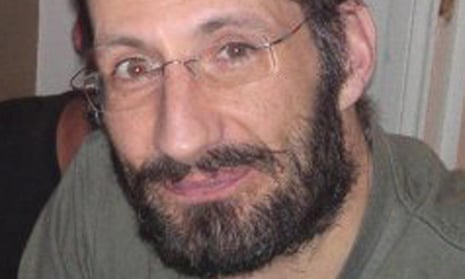The widow of a British-based photographer who was murdered by Col Gaddafi’s forces in Libya in 2011 has accused South Africa of withholding crucial information about her husband’s death that could help in efforts to locate his body.
Anton Hammerl was killed in an incident in May 2011 that saw other journalists, including James Foley – who was later kidnapped and beheaded by Islamic State in Syria – taken prisoner.
Penny Sukhraj-Hammerl found out on 19 May 2011 her husband was dead after 44 days of being led to believe that he was still alive in captivity along with other journalists.
The body of Hammerl – who was shot and left for dead in the desert – has never been found despite a years-long campaign by his widow.
At issue is the circumstances of the return of Hammerl’s passport to his widow by South Africa in 2016. Sukhraj-Hammerl believes the circumstances of how his passport came to be in South Africa may help the family find his body.
“It was posted to my office in mid-2016. I was quite overwhelmed as I didn’t expect it,” she said, explaining that her husband would have been carrying his ID document at the time of his death in a photographer’s waist pouch he wore.
Despite the unexplained delivery of the passport, the family’s subsequent efforts to find out how the passport came to be handed over to the South African government, including a freedom of information request, have been stonewalled repeatedly, prompting the family to go public about the passport.
In a letter sent this week to the South African high commissioner, Nomatemba Tambo, in London and copied to the country’s president, Cyril Ramaphosa, the family’s anger is palpable.
“It’s been nearly a year since I first wrote to you and your government to request a meeting regarding the case of my late husband … who was murdered by Gaddafi forces in Libya in April 2011.
“During this time, we have signalled publicly and privately on several occasions that we would like to meet urgently to discuss a matter of serious concern in the handling of our case. More than a decade since Anton’s death, we still don’t know the location of his remains.
“We still don’t have a grave to visit. We still don’t know the truth. Your administration’s response? Silence.”
Sukhraj-Hammerl told the Guardian: “I’m baffled by their response. They’ve demonstrated no regard for accountability. We’ve requested meetings that have not been granted.
“I feel that they had information that they should have shared with us. So many officials involved that I find it hard to believe that someone doesn’t know something as significant as how a passport came to be handed over.”
Sukhraj-Hammerl, 46, will also be speaking at a public event at the Frontline Club in London on Thursday evening, the 11th anniversary of the discovery of his death, where she will be joined by James Foley’s mother, Diane, and Matthew Caruana Galizia, one of the sons of assassinated Maltese journalist Daphne Caruana Galizia.
The issue with the passport has been part of a series of rebuffs for the family since Anton disappeared in 2011. The family were led to believe that the then South African president Jacob Zuma (who has denied accusations of receiving $30m from Gaddafi) would raise the issue on a visit to Tripoli in the last days of Gaddafi’s rule, only to discover it was not discussed.
“I think we’re calling for justice and truth. We’ve not had the due – as family we should have had. It’s been really distressing. It’s horrid (to) realise [the South African government] had an opportunity to do more and choose deliberately (to) ignore us.
“We have a right to know. They owe us an explanation. It is least that they can do.”
The South African high commission in London has been approached for comment.
